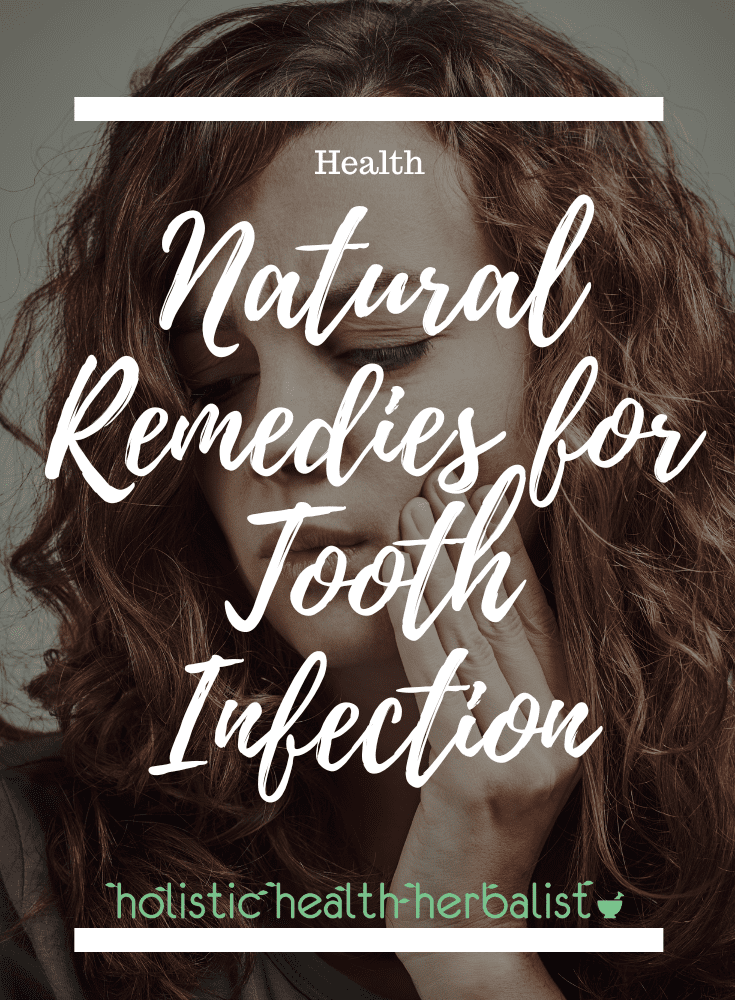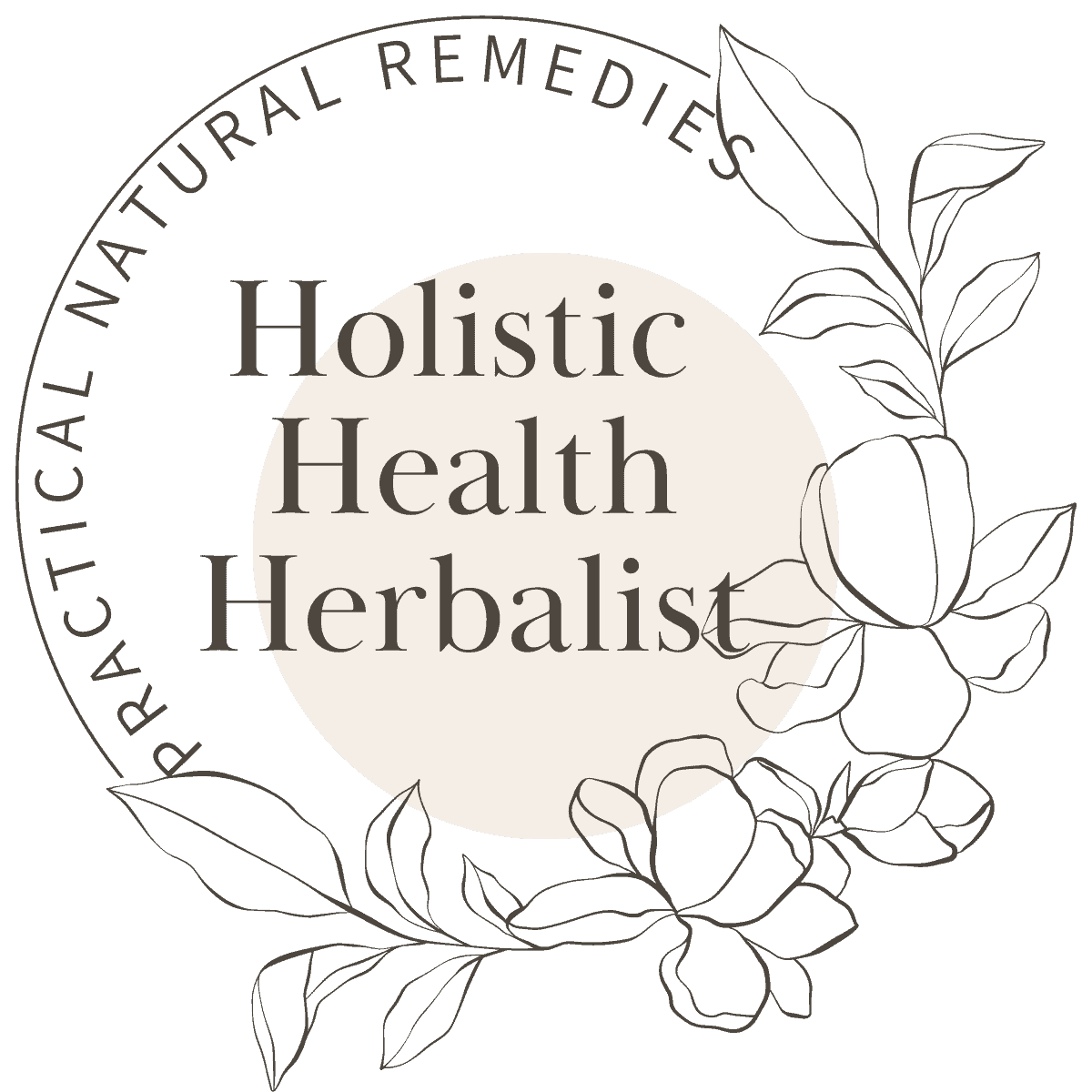
Having a few natural remedies for tooth infection on hand can be a game-changer, especially when it may take a while to see a dentist. Home remedies can help dull the pain, reduce inflammation, fight off germs and bacteria, and offer just a bit more comfort until conventional treatments can be used.
Today, we will investigate different at-home treatments that have shown anti-inflammatory, analgesic, and antibacterial potential when used for tooth infections.
With these methods, you can access safe and affordable alternatives to maintain optimal oral health.
We will discuss the benefits of using a saltwater rinse, a hydrogen peroxide rinse, colloidal silver, and more as simple yet powerful solutions for relieving tooth pain.
Next, we will delve into essential oils and their antibacterial properties, making them suitable candidates for treating infected teeth. In addition to essential oils, herbal teas such as fenugreek and goldenseal tea can relieve tooth abscesses.
Last but not least, our exploration of natural remedies for tooth infection would only be complete with discussing preventive measures like proper oral care maintenance.
Learn about the incredible benefits of aloe vera gel on gum tissues or garlic's antiseptic properties, which help combat bacterial infections in the mouth.
Finally, discover how oil pulling techniques contribute to overall dental hygiene by reducing inflammation and promoting healthy gums.
What are the Symptoms of a Tooth Infection?
Symptoms of a Tooth Infection include:
- Difficulty breathing and swallowing
- Extreme pain while chewing and biting
- Extreme sensitivity to hot and cold temperatures
- Foul taste and scent in your mouth
- Severe and persistent toothaches
- Swollen face and cheeks
- Swollen lymph nodes under the jaw
- Toothaches accompanied by fevers
- Toothaches that spread into the jawbone, neck, and other parts of your face
- Visible gum abscess at the tooth’s root
Pain:
One of the most common symptoms associated with a tooth infection is pain. This can range from mild to severe and may be felt in the area around the infected tooth or even in other parts of your head, such as your jaw or ear. The pain might come on suddenly and be sharp, throbbing, or constant.
Sensitivity:
Another symptom that often accompanies an infected tooth is sensitivity to hot and cold temperatures. You may find it difficult to eat or drink anything that’s too hot or cold because it causes discomfort near the affected area.
Swollen Gums:
Swelling of the gums near an infected tooth is another common sign of a dental infection. This swelling usually comes with redness and tenderness when touched. It may also cause facial swelling on one side if left untreated for long enough.
Bad Breath:
A foul smell coming from your mouth can indicate that you have an oral infection due to bacteria buildup caused by poor oral hygiene habits such as not brushing regularly enough or not flossing after meals properly. If this bad breath persists despite brushing more frequently, you should visit your dentist immediately for further investigation into what could be causing it.
Fever & Fatigue:
An abscessed tooth can lead to systemic infections, which are severe medical conditions that require immediate treatment from a professional healthcare provider, such as fever, fatigue, nausea, and vomiting, etc.; if any of these symptoms occur alongside those already mentioned above, then contact your doctor immediately for further advice about how best to proceed with treatment options available for you.
Gum Abscess Vs. Tooth Abscess
Gum Abscess:
A gum abscess is a pocket of pus that develops in the gums due to extensive bacterial infection. It’s usually caused by poor oral hygiene, but can also be caused by trauma or injury to the mouth.
Symptoms include pain and swelling around the affected area, bad breath, and difficulty eating.
Treatment for a gum abscess typically involves draining the pus from the infected area, followed by antibiotics to prevent further infection.
Home remedies such as warm salt water rinses may also help reduce pain and inflammation associated with a gum abscess.
Tooth Abscess:
A tooth abscess is an infection at the root of a tooth that results in a pocket of pus developing within its tissues or surrounding bone structure.
Symptoms include severe throbbing pain when chewing food, sensitivity to hot and cold temperatures, feverishness, swollen lymph nodes in your neck or jawbone area, foul taste in your mouth, and/or bad breath.
Treatment for this type of abscess includes draining it through either drilling into it or surgically opening up its cavity; antibiotics are then prescribed to help fight off any remaining bacteria present in order to prevent further infection from occurring.
Over-the-counter medications like ibuprofen can provide relief from some of these symptoms, while home remedies such as diluted clove essential oil applied directly on the affected area may help alleviate some discomfort too.

10 Natural Remedies for Tooth Infection
While natural remedies can be helpful for wound healing and help keep an infection from getting worse, it's essential to see a dentist if you're experiencing pain, inflammation, and fever from an abscessed tooth.
However, if things are not severe and you are waiting to be seen by a dentist, the following remedies can be used.
1. Salt Water and Baking Soda Rinse
Rinsing with a mixture of salt water and baking soda can help sterilize the area around an infected tooth, relieving pain.
This saline solution is safe to use every few hours if needed, making it an effective natural remedy for managing symptoms while waiting for professional dental treatment.
Preparing the Salt Water and Baking Soda Rinse
To prepare this simple yet powerful home remedy, follow these steps:
- Fill a glass with 8 ounces of warm water.
- Add a half teaspoon of sea salt to the glass filled with 8 ounces of warm tap water.
- Mix in half a teaspoon of baking soda until dissolved completely.
- Stir well before using it as a rinse.
The mixture of salt and baking soda can work to combat the bacteria that cause dental issues. The warm water aids in reducing inflammation and soothing irritated gum tissues surrounding the affected tooth.
It's important to note that this rinse should not replace regular oral hygiene practices such as brushing your teeth twice daily or flossing regularly but can be used alongside them when dealing with dental infections like tooth abscesses or gum disease.
You can also just use a saltwater rinse as often as needed with warm water.
Frequency of Usage
You may use this homemade saline solution every few hours or after meals to relieve pain caused by an infected tooth.
However, it is crucial not to overuse this rinse since excessive usage might lead to dryness inside your mouth, which could further aggravate existing oral health issues.
Remember that although rinsing with saltwater and baking soda offers temporary relief from discomfort associated with dental infections, you must consult your dentist promptly for proper diagnosis and treatment options.
These might include antibiotics or root canal procedures depending on the severity of the infection.
Although natural remedies may bring temporary relief, they should not be a substitute for professional dental care.
Be sure to consult your dentist if you suspect an infection or are experiencing persistent tooth pain.
2. Essential Oils for Tooth Infection Relief
Essential oils such as clove oil, thyme oil, and oregano oil have antibacterial properties that can provide relief from toothache pain associated with infections.
How to Apply Essential Oils Safely
To use essential oils for tooth infection relief, it is crucial to dilute them properly before applying directly onto the affected area.
Mix a few drops of your chosen essential oil with a carrier oil like coconut or sesame oil at 12 drops per 1 oz of carrier oil.
This helps prevent irritation and potential burns caused by an undiluted application.
You can then gently massage a few drops of the diluted mixture onto the infected area using clean fingers or cotton swabs. You can also drench a cotton ball and hold it in place over the infected area.
Choosing the Right Essential Oil for Your Needs
For these oils, dilute 6 drops per 1 oz of carrier oil.
- Clove Oil: Clove has been used traditionally as an effective remedy against toothaches due to its powerful analgesic and anti-inflammatory properties. It contains eugenol, which numbs dental nerves providing instant pain relief (source). To use clove oil effectively on an infected tooth, follow the safe application steps mentioned above.
- Thyme Oil:Thyme oil is known for its potent antibacterial and antifungal properties. It helps in reducing inflammation and fighting bacterial infections responsible for dental abscesses (source). Apply diluted thyme oil to the affected area as directed above to help alleviate pain and discomfort caused by an infected tooth.
- Oregano Oil: Oregano essential oil has powerful antibiotic properties that can aid in combating oral bacteria associated with gum disease, tooth decay, and infection (source). Use oregano oil following the same dilution guidelines provided earlier to ensure a safe application on your infected tooth or gums.
Incorporating these essential oils into your home remedies arsenal can provide temporary relief from pain caused by a tooth infection while you wait for professional dental care.
Essential oils can be a powerful tool in fighting tooth infection, but they must be used with caution.
3. Herbal Teas to Alleviate Symptoms
Drinking or swishing with herbal teas like fenugreek tea or goldenseal tea may offer soothing effects on inflamed gum tissues surrounding an affected area during recovery periods after dental treatments involving extractions or root canals.
These teas not only taste good but also aid in alleviating symptoms related to painful tooth infections.
Benefits of Fenugreek Tea
Fenugreek is a popular herb known for its anti-inflammatory properties, which can help reduce inflammation and swelling around the infected tooth.
It has been used traditionally as a natural remedy for various ailments, including digestive issues and skin conditions.
To prepare fenugreek tea:
- Add one teaspoon of crushed fenugreek seeds to a cup of boiling water.
- Allow the mixture to steep for 10 minutes before straining.
- Strain the mixture into another cup and drink while warm.
Goldenseal Tea's Healing Properties
Goldenseal, another powerful herb with antibacterial properties, can be beneficial in fighting off bacterial infection causing your tooth pain.
The alkaloids present in goldenseal have antimicrobial effects that may help eliminate harmful bacteria from your mouth, promoting oral health overall.
Here's how you can make goldenseal tea at home:
- Add one teaspoon of dried goldenseal leaves to a mug of boiling water.
- Allow the tea to steep for 15 minutes with a lid covering the mug.
- Strain the mixture into another cup and drink while warm. You can also add honey or lemon for taste if desired.
Incorporating these herbal teas into your daily routine may help provide temporary relief from tooth pain caused by infections.
4. Hydrogen Peroxide
Food-grade hydrogen peroxide is a great natural remedy for tooth infection and can be used to help relieve bacterial infections in the gums or mouth.
It's important to make sure you're using 3 percent concentration hydrogen peroxide when using it at home.
To use this method, mix equal parts of 3 percent hydrogen peroxide and water together before swishing it around your mouth for about a minute before spitting it out - just make sure not to swallow the mixture.
This rinse can be done up to three times daily if needed.
5. Oil Pulling
What is Oil Pulling?
Oil pulling is an ancient Ayurvedic practice that involves swishing oil in your mouth for up to 20 minutes. This is believed to kill bacteria and remove impurities from the mouth.
The most common oils used are coconut oil and sesame oil (non-toasted).
How Does it Work?
The idea behind oil pulling is that when you swish the oil around your mouth, it traps bacteria and toxins in its molecules.
Over time, this can help reduce inflammation in the gums, improve gum disease, reduce bleeding gums, and improve bad breath.
Benefits of Oil Pulling:
The primary benefit of oil pulling is improved oral hygiene; however, some people claim they have experienced other benefits, too, such as better skin complexion or increased energy levels due to detoxification effects on their body systems.
Additionally, since no harsh chemicals are involved in this practice, it makes a great alternative for those looking for more natural ways to care for their teeth and gums.
Tips For Doing Oil Pulling:
When starting out with oil pulling, make sure you start off slowly by doing just 5-10 minutes per day until you get used to the process before increasing your time each day up to 20 minutes maximum (considered optimal).
Try not to swallow any of the oil while swishing. Once you're finished, spit the oil into a trash can (not the sink or toilet since the oil can cause buildup) and rinse thoroughly with water.
6. Aloe Vera Gel
Benefits of Aloe Vera gel:
Aloe vera gel is known for its anti-inflammatory and antibacterial properties, which make it an ideal natural remedy for treating pain, inflammation, and infections.
It can be used to treat cuts, burns, toothaches, mouth sores, rashes, and other skin irritations. The astringent properties of aloe gel also help reduce swelling and inflammation.
How to Use Aloe Vera gel:
Using aloe vera gel is easy; apply the aloe gel directly onto the affected area with a clean finger, cotton swab, or hold it in place using a cotton ball.
If you have an aloe plant at home, you can extract the fresh juice from its leaves by pulsing them in a blender or food processor.
Otherwise, you can purchase pure aloe vera from any health store or grocery store near you.
For best results use cold pressed organic aloe vera as it contains more beneficial compounds than processed versions do.
7. Garlic
Garlic is a powerful natural antibiotic, thanks to its active ingredient allicin.
Allicin has been proven in scientific studies to have antibacterial properties that can kill bacteria and fight infections such as tooth decay and gum disease.
The sulfur compounds present in garlic also contribute to its antimicrobial activity, making it an effective remedy against bacterial growth in the mouth.
How to Use Garlic for Tooth Infections:
To get the most out of garlic’s antibacterial properties, you should create a paste by crushing fresh cloves of garlic, mixing it with equal parts coconut oil, and applying it directly onto the affected area (such as around the root of a tooth).
Doing this several times per day will help reduce pain from an infection and prevent further bacterial growth.
Raw garlic can be quite hot and spicy. To lessen the heat, mix the garlic paste into hot coconut oil. Allow the mixture to cool before application.
Benefits of Using Garlic:
Using garlic as part of your dental care routine can provide numerous benefits, including fighting off harmful bacteria, reducing inflammation caused by infection, preventing cavities or gum disease from developing, relieving pain associated with a toothache or other oral problems, improving bad breath (halitosis), and even whitening teeth.
In addition to these advantages, using garlic is inexpensive compared to traditional treatments like antibiotics or over-the-counter medications - making it an ideal choice if you’re looking for an affordable way to treat dental issues naturally at home while waiting to be seen by a dentist.
8. Cold Compress
What is a Cold Compress?
A cold compress is an easy and effective way to relieve pain and reduce swelling in the mouth.
It can be made with ice, frozen vegetables, fruit, or even just a bag of ice water.
Simply wrap the desired item in a clean cloth or towel to form an ice pack that can be applied directly to the sore area.
How Does it Work?
The cold temperature of the compress helps to reduce inflammation by constricting blood vessels which reduces swelling and numbs nerve endings responsible for transmitting pain signals from the affected area to your brain.
This helps provide temporary relief from discomfort caused by cavities, gum disease, infections, or other dental issues such as abscesses.
Benefits of Using Cold Compresses
Cold compresses are safe and easy to use at home without any special equipment needed and will help reduce swelling and pain.
9. Black Tea Bag for Tooth Infection
Benefits of Black Tea Bags:
Black tea bags are a great natural remedy for tooth infections and inflammation due to their tannin and antioxidant content.
The antioxidants in black tea can help reduce pain, fight bacteria, and promote overall oral health.
The anti-inflammatory properties of black tea can help soothe inflamed gums and reduce swelling in the mouth caused by infection or injury.
Plus, regular consumption of black tea may even be able to prevent future dental problems from occurring. My dentist claims that this is because black tea contains naturally occurring fluoride.
How to Use a Black Tea Bag:
Using a black tea bag for a tooth infection is easy.
Simply dip it into lukewarm water for five minutes before applying it directly onto the affected area for 20-30 minutes, 2-3 times daily.
10. Colloidal Silver
Benefits of Colloidal Silver:
Colloidal silver is known to have anti-bacterial, anti-inflammatory, anti-viral, immune boosting, and wound healing properties making it an excellent remedy to have on hand for tooth infections.
How to Use Colloidal Silver:
Colloidal silver is usually sold in a dropper bottle which makes it easy to use.
Soak a cotton ball with colloidal silver solution and apply it to the affected tooth for 20-30 minutes. Do this 2-3 times a day.
You can also rinse your mouth with colloidal silver mixed with equal parts water and wish it around for 7 -10 minutes 2-3 times daily.
You can also ingest the colloidal silver. Follow the instructions for use on the product packaging.
Natural Remedies for Oral Care Maintenance
Maintaining good oral health is essential in preventing tooth infections and other dental issues. Integrating natural remedies into your daily habits can help keep your teeth and gums healthy, reducing the chance of requiring professional treatment for dental issues.
The Benefits of Aloe Vera Gel for Oral Health
Aloe vera gel has been known for its anti-inflammatory and antibacterial properties which make it an excellent choice to maintain optimal oral health.
Applying a small amount of pure aloe vera gel directly onto the affected area can soothe gum inflammation and promote healing.
You can also try swishing some aloe vera gel in your mouth as a substitute for conventional mouthwashes before spitting it out.
Garlic's Antiseptic Properties
Garlic contains allicin - an active compound with potent antibacterial and antifungal properties.
Consuming raw garlic cloves regularly not only helps boost immunity but also aids in fighting off bacterial infection within the oral cavity.
To use garlic as a remedy for tooth pain or infection, simply crush one fresh clove into a paste and mix it with coconut oil and apply it directly on the infected area.
Oil Pulling and its Benefits
- Promotes overall oral health:Oil pulling helps in removing bacteria, plaque, and toxins from the mouth. This leads to improved gum health, fresher breath, and reduced risk of dental infections.
- Whitens teeth naturally: The swishing action of oil pulling can help remove stains from your teeth over time, resulting in a brighter smile without using harsh chemicals or abrasive treatments.
- Reduces inflammation: By eliminating harmful bacteria from the oral cavity, oil pulling may reduce inflammation and swelling associated with gum disease or tooth infection.
To perform oil pulling effectively at home:
- Select an organic cold-pressed coconut or sesame oil for the best results.
- Swish one tablespoon of the chosen oil around your mouth for about 15-20 minutes on an empty stomach first thing in the morning before brushing your teeth. Make sure not to swallow any of it as it contains accumulated toxins during this process.
A List of Extracts and Supplements for Sustained Oral Care
The collection of remedies below are for various oral care needs, including extracts and supplement for pain management, infection, plaque reduction, bad breath, and a few things that even help prevent pathogens from sticking to healthy tissues and spreading.
Pain relievers and plaque prevention
- Spilanthes Tincture - Used for toothaches and gum sores
- Vitex negundo leaves - A tea made with fresh vitex leaves can be swished in the mouth for pain relief
- Bromelain - Can be used to fight the buildup of plaque
- Green tea - Drink throughout the day to fight the buildup of plaque
- Triphala - Aids digestion and also prevents the buildup of plaque
- Propolis tincture - treats infection, sore gums, bleeding gums, and prevents plaque buildup
Antiadhesion activity (prevents pathogens from attaching to healthy tissue)
- Cranberry juice
- Black tea
- Andrographis - highly anti-viral supplement that can be taken during tooth infection
- Helichrysum - Can be taken as a tea (also known as immortal or everlasting)
- Apples - An apple a day can keep tooth infections away!
Bad breath prevention and treatment
- Green tea
- Cinnamon bark essential oil (well diluted in carrier oil)
- Tea tree essential oil
- Juniper essential oil
- Eucalyptus essential oil
- Yellow mustard
- Licorice root extract
- Panax ginseng
Infection fighters
- Oregano oil
- German chamomile essential oil
- Tea tree essential oil
- Raw apple cider vinegar
- Berberine
- Quercetin
- Sage tincture
- Garlic Tincture
- Propolis
- Turmeric
- Chamomile tincture
Frequently Asked Questions About Natural Remedies for Tooth Infection
How can I get rid of a tooth infection without antibiotics?
The only way to get rid of a tooth infection without antibiotics is if the infection is very mild. You can use frequent salt water rinses, use colloidal silver topically and take it internally in a glass of water, and use clove essential oil for any pain and discomfort.
With proper and consistent oral hygiene practices, you may be able to get rid of the infection.
Can you heal an infected tooth naturally?
You can if it's mild enough. If the infection has become moderate, however, it is unlikely that you will be able to eradicate it completely without the help of a dentist. Drainage and antibiotics may be required.
How to get rid of a tooth infection without going to the dentist?
You can only avoid the dentist if the tooth infection is mild. For moderate and severe cases, it is likely that the infection will need to be drained, a root canal administered, or the rotten tooth removed.
What is the best herbal antibiotic for tooth infection?
The best herbal antibiotic for tooth infection is andrographis. This herb is highly anti-viral and antibacterial and can be used to fight tooth infections.
What is the fastest way to get rid of a tooth infection?
The fastest way to get rid of a tooth infection is to see a dentist. They can drain abscesses, administer a root canal, or remove a rotten tooth that may be causing the infection.
How to get rid of tooth infection naturally?
As soon as you suspect something is wrong and a tooth infection may be forming, immediately begin using saltwater rinses, and colloidal silver compresses, and drink goldenseal tea (if you have no contraindications).
This will help stall the infection from getting worse for a time until you can see a dentist.
What naturally kills a tooth infection?
Natural remedies that can help kill a tooth infection include saltwater and baking soda rinse, essential oils like clove, thyme, and oregano oil, herbal teas such as fenugreek and goldenseal tea, aloe vera gel application, oil pulling techniques using coconut or sesame oil, garlic as an antiseptic agent and cold compresses for pain relief.
It is important to consult with your dentist before trying any home remedy.
What is the strongest natural antibiotic for humans for tooth infection?
The strongest natural antibiotic for tooth infections is often considered to be clove oil, due to its powerful antibacterial properties.
Clove oil contains eugenol, which has analgesic and anti-inflammatory effects.
However, it's crucial to use dilute clove essential oil or it may burn oral tissues. Use 1 drop per teaspoon of carrier oil to start.
Can your body naturally fight off tooth infection?
Your body has some ability to fight off minor dental infections through its immune system; however, severe or prolonged infections require professional treatment from a dentist.
Ignoring symptoms of an infected tooth can lead to complications such as abscess formation or spread of the infection into surrounding tissues.
Always seek dental advice if you suspect a serious issue.
Key Takeaway
Natural treatments for a tooth infection can be advantageous in alleviating the pain and discomfort of an infected tooth.
Salt water rinses, essential oils, herbal teas, aloe vera gel applications, and oil pulling techniques are all effective home treatments that can provide relief from the symptoms associated with this condition.
However, if the infection is moderate to severe, it's best to see the dentist and get everything removed and cleaned up.
You may also enjoy reading:
5 Pain-Relieving Home Remedies for Toothache
How to Make The Perfect Fool-Proof Arnica Salve for Bruising, Post-Surgery, and Aches & Pains







Leave a Reply